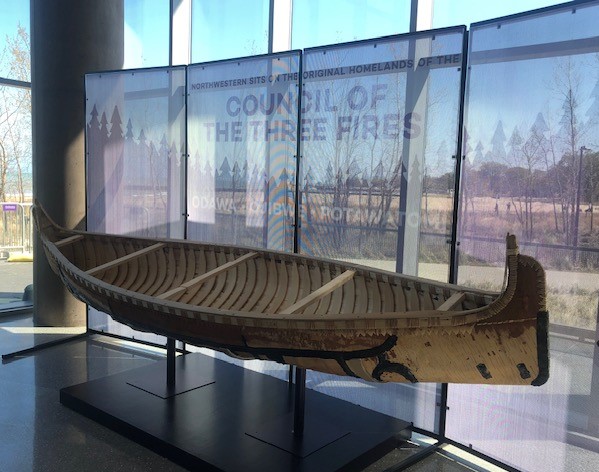Land Acknowledgment Resources
Education & Engagement Series (asynchronous):
Land Acknowledgment: Whether you are new to the topic or looking to deepen your understanding, each installment of this series offers additional perspectives, historical context, and actionable steps for understanding the potentially transformative power of land acknowledgments.
Lesson 1: Unearthing Forgotten Histories: Indigenous Presence and the Shadows of Colonization
Lesson 2: Worldviews in Collision: The Dance of Dominion, Diversity, and Land Relationships
Lesson 4: Beyond Words: Transforming Land Acknowledgments into Pathways for Action and Healing
Facilitated Workshop
The Land We Learn On: Refusing Invisibility & Erasure of Indigenous Communities
Led by Aaron Golding and Jasmine Gurneau
In this 90 minute training, participants will better understand what a land acknowledgment is and why it is important both individually and in relation to Indigenous Peoples. Participants will also learn a brief history of Native American initiatives at Northwestern, settler colonialism, and how to intentionally and respectfully engage with Indigenous communities to build relationships beyond the land acknowledgment statement.
*due to current capacity constraints, we are only able to offer this workshop to internal Northwestern-affiliated units. We are offering 30-minute consultation requests in lieu of a formal workshop.
Land Acknowledgment Workshop Schedule
July 20, 2023; 11:30 AM - 1:00 PM: Register Here
October 18, 2023; 11:30 AM - 1:00 PM: Register Here
Pronunciations
Potawatomi (Bodéwadmik)- Pot-tah-WAH-tah-mee
Ojibwe (Anishinaabeg)- Oh-JIB-way
Odawa (Odawak)- Oh-DAH-wah
Learn more about local, present-day Nations here:
https://www.ala.org/aboutala/offices/diversity/chicago-indigenous
Content in the link above used by permission of the American Library Association, Office for Diversity, Literacy and Outreach Services.
Visit our Land Acknowledgment Installation
In 2021, the Center for Native American and Indigenous Research (CNAIR) commissioned Wayne Valliere as its artist-in-residence. An elder of the Lac du Flambeau Band of Lake Superior Ojibwe, Valliere is one of the few remaining traditional birch bark canoe makers alive today.
artist-in-residence. An elder of the Lac du Flambeau Band of Lake Superior Ojibwe, Valliere is one of the few remaining traditional birch bark canoe makers alive today.
In preparation for his residency, 35 families and community members travelled to the Lac du Flambeau Ojibwe reservation in northern Wisconsin to harvest the materials to build Northwestern its very own traditional birch bark canoe- or Wiigwaasi-jiimaan. Later, in October 2021, over the course of three weeks, the local Indigenous community, Evanston residents, and Northwestern students, faculty, and staff all helped to build the canoe.
On October 31, 2021, over 100 people gathered at Northwestern’s lakefront to witness the launching of the completed canoe. This was likely the first time in hundreds of years that a birch bark canoe was launched on the southern shores of Lake Michigan. In attendance were members of the OJibwe, Odawa and Potawatomi Nations representing the tribal nations that make up the Council of Three Fires and the traditional stewards of the land that Northwestern currently occupies.
These efforts were connected to Northwestern’s larger goals towards acknowledging its history and honoring Indigenous Peoples through various efforts outlined through the Native American Outreach and Inclusion Task Force (NAOITF) Recommendations Report published in 2014. Recommendations include developing working relationships and partnerships with tribal nations, institutions and communities, research and academic efforts, on-campus support services, pathway efforts, and alumni outreach.
Coupled with the notable, educational work Northwestern has been doing around Land Acknowledgment practices, the birch bark canoe creates an affirming, instructive, multi-disciplinary introductory experience for Northwestern University visitors and the campus community.
Visit the the wiigwaasi-jiimaan (birch bark canoe), located at the Segal Visitors Center at 1841 Sheridan Rd, Evanston, IL.
You can also explore this website to learn more about the wiigwaasi jiimaan and its creation.
Video by Multicultural Student Affairs
Created for incoming students during Wildcat Welcome Orientation
Indigenous Ally Toolkit
Created by Montreal Indigenous Community Network, this Indigenous Ally Toolkit (2019), explains the role that an individual occupies and plays within the collective experience and SO MUCH MORE!
Downloads
We invite you to post this flyer in your work space to help spread awareness and reflection on Northwestern’s place in relation to the land its situated on. You can download, print and post the images below:
Land Acknowledgment poster- PNG
Land Acknowledgment poster- PDF
Land Acknowledgment logo- purple
Land Acknowledgment logo- white
Zoom Virtual Background #1
Zoom Virtual Background #2
Zoom Virtual Background #3
Birch Bark Purple Outline Northwestern N logo
Birch Bark Northwestern N logo